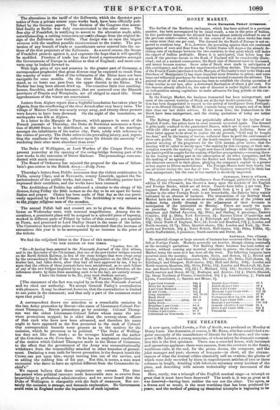A correspondent draws our attention to a remarkable omission in
the late Army promotion by Brevet—the name of Lieutenant-Colonel Per- ronet Thompson. Brevet promotions go by seniority. Colonel Thomp- son was the oldest Lieutenant-Colonel before whose name the pre- vious promotions stopped; he is older than the seventy-three officers of that rank who have now been advanced, and therefore his name ought to have appeared as the first promoted to the rank of Colonel. Our correspondent hazards some guesses as to the motives for the omission, which he presumes to be political. " The Duke of Welling- ton does not like free trade ; so he revenges himself on the author of the Catechism on the Corn-laws. Or he has an unpleasant recollection of the motion which Colonel Thompson made in the House of Commons, to the effect that the government of the Army was unconstitutionally withdrawn from the responsibility attached to other branches of govern- ment. Declaring a man unfit for brevet promotion, is the deepest insult the Crown can put upon him; except turning him out of the service, and so adding the robbing him of his pay. But this, it seems, a man must encounter who dares to have an opinion different from the Commander-in- chief's."
We cannot believe that these conjectures are correct. The time has passed when political rancours made honourable men so swerve from impartiality in professional administration; and we never heard that the Duke of Wellington is chargeable with ,the fault of meanness. But cer- tainly the omission is strange, and demands explanation. No Government could exist in England under the imputation of such injustice.


























 Previous page
Previous page